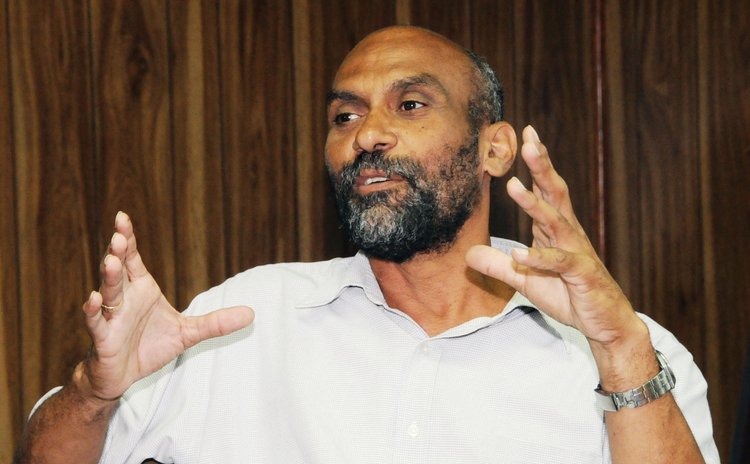Getting ready for possible disasters

During hurricane season, one main question is: what are those responsible for disaster management doing to help us minimize the impact of hurricanes?
For an answer, The Sun turned to Disaster Risk Management Specialist at the Office of Disaster Management, Cecil Shillingford who gave a comprehensive overview of what is being done.
Shillingford asserted that Government is currently implementing new measures to prepare citizens for storms and keep them as safe as possible this season.
To help accomplish this, a National Disaster Coordinator has been appointed and a fully functional Office of Disaster Management is being established.
Two staff members are already on board, Shillingford noted, and he recommends that the unit should eventually have a coordinator plus five programme officers.
Following 2015's Tropical Storm Erika, the National Emergency Planning Organisation is being strengthened to ensure that all supporting agencies and officials know their role, he said.
"It appeared that a lot of people were not sure of their roles and responsibilities during [Tropical Storm] Erika," Shillingford explained, "A lot of people just volunteered…
"Maybe, not having been trained or even exposed to the standard operating procedures for an emergency operation centre, they were not too clear on some of the responsibilities," he added.
Shillingford noted that disaster management training equips participants to assess storm-damage and manage shelters among other emergency response functions.
Shelter managers in the southern district have been trained, he said, and a schedule has been activated for officers from the other six districts.
Highlighting the importance of training, Shillingford said establishing effective shelters requires having trained managers capable of fulfilling vital management responsibilities.
Shelter managers have to be able to organise and overlook the daily operations of shelters, deal with problems as they arise and keep accurate records.
Shillingford also disclosed that operators will be deployed at national emergency operating centres and they are now being trained in standard procedures.
"The emergency operating centre is the nerve centre or the information management centre of any emergency or disaster situation," Shillingford explained.
He said the approach is to review training models for emergency operation centres in the Caribbean to come up with one suitable for Dominica.
Another key development, he said, has been the identification of a first-response rescue team of about 36 persons who will be called upon to act immediately when disasters strike.
The goal is also to have first-response teams at a community level in all districts and so additional training has commenced for representatives from various communities.
Their training programme focuses on search and rescue operations, damage assessment, first aid and more.
TS Erika exposed the challenges of moving in and out of storm-hit areas, raising the suggestion of establishing strategically placed food banks for emergencies.
"We realise that [after TS Erika] with all the bridges that went, all the landslides . . . it was difficult to reach certain communities . . . the Delices area was cut off. . . for quite a while," he said.
Shillingford revealed that the US Army Southern Command is preparing to build two warehouses to store emergency supplies; one at Castle Bruce and the other at Portsmouth.
Additionally, local authorities intend to place a "container warehouse" with emergency supplies in each district, Shillingford said, but these may not be ready this year.
Meanwhile, he acknowledged serious land use and development issues because of human encroachment on unstable riverbanks and ravine edges, vulnerable slopes and high-risk waterfronts.
In the era of stronger and more erratic storms, efforts to mitigate their effects and minimize losses must take climate change into account, Shillingford said.
Therefore, essential river and ravine works need to be done and adequate drainage systems established, he asserted, noting that soil stabilization may be necessary in areas with a high landslide risk.
Public information is also key, he said. "Sometimes you wonder if people even worry about those things unless it hits them.
"People go along their merry way not realizing if they throw an old fridge in a ravine, later they will find it on their seashore or downstream somewhere.
"These [garbage] disposals have to be done responsibly," Shillingford warned.




